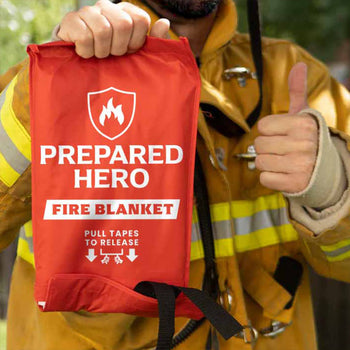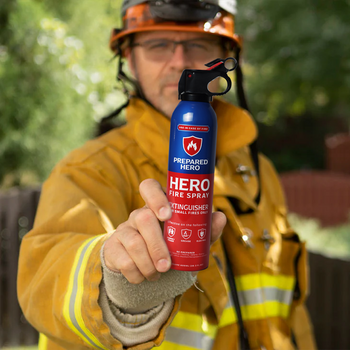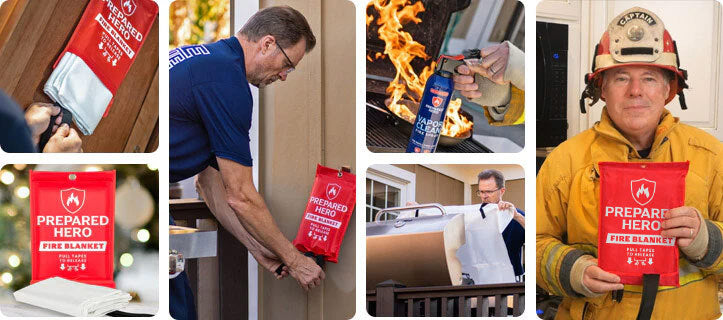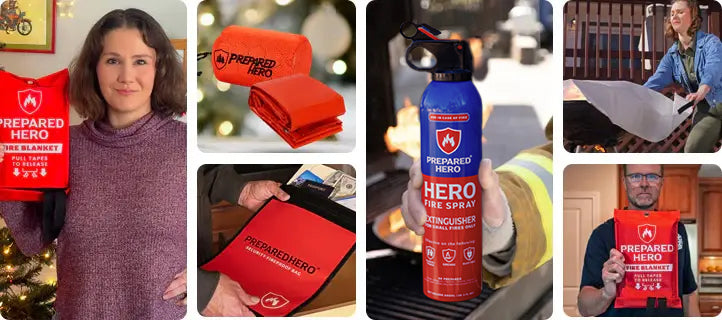Where you put your smoke detectors matters just as much as installing them. Proper placement makes sure they can detect...
Did you know? Fire can spread in as fast as 30 seconds. It spreads faster as heat, fuel, and oxygen increase.
Given this, knowing when to evacuate your house after a fire starts can save your and your family's lives. In this post, we'll talk about when you must evacuate your house.
What to Do if There’s a Fire in Your House

If a fire breaks out in your home, see if it’s small enough to be extinguished using a fire spray or fire extinguisher. If it is, use the tool to put out the fire.
Make sure to use the right type of fire spray or extinguisher. For instance, you can’t use a water-based fire extinguisher to put out a grease fire because water makes this type of fire worse.
If you can’t extinguish the fire quickly, evacuate your house right away. We’ll talk about evacuating in detail in the next section.
When to Evacuate Your House
Evacuate your house immediately if you’re in these situations:
If the Fire Is Spreading Fast

If the fire spreads quickly and can't be contained, evacuate your house. Remember, trying to fight a rapidly spreading fire is extremely dangerous.
If You See Heavy Smoke

If heavy smoke fills your house and you find it hard to breathe or see, it's time to evacuate. Smoke can be more dangerous than flames since they contain harmful gases, such as carbon monoxide, which can be lethal in small doses.
If You’re Not Sure How Big the Fire Is

Evacuate your house right away if you're not sure how big the fire is. Remember, fire can quietly spread within walls or ceilings and suddenly explode.
If You Can’t Extinguish the Fire Safely

If you can't get to a fire spray or fire extinguisher or the tool is ineffective against the type of fire you're facing (e.g., a water-based fire extinguisher against a grease fire), evacuate your house and leave the rest to the authorities.
If the Exits Are Blocked

If fire blocks the main exits or your way to safety is compromised, leave your house through the nearest exit or alternate escape route.
If the Authorities Tell You to Evacuate

Always listen to firefighters or other emergency authorities. If they tell you to evacuate, do it without thinking twice.
First, alert all residents in your house. If the fire alarm malfunctions, shout loudly and clearly so everyone can hear you. Then, knock on the doors of the elderly and children to make sure they're safe.
Next, follow your escape plan or fire exit strategy. However, if the smoke starts to fill your house, go for the nearest exit. It could be a window, door, or emergency exit.
Conclusion
After evacuating safely, call 911 or your local fire department (if you haven't already). Then, inform your neighbors about the fire in case it has spread to their homes.
Remember, you can always replace your material possessions, but not people's lives. Stay safe, hero!


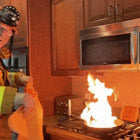 Fire
Fire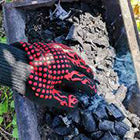 Safety
Safety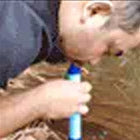 Survival
Survival Protection
Protection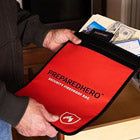 New
New
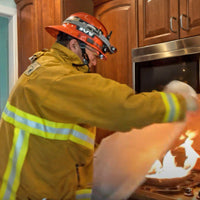 Fire
Fire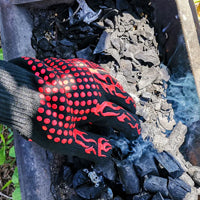 Safety
Safety Survival
Survival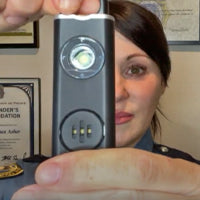 Protection
Protection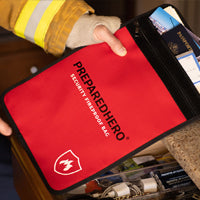 New
New
